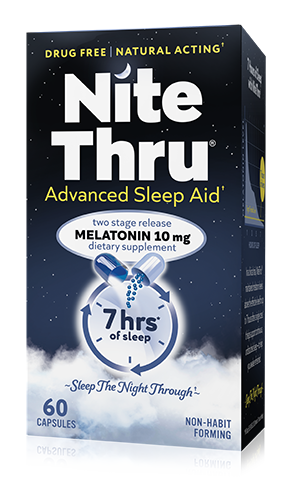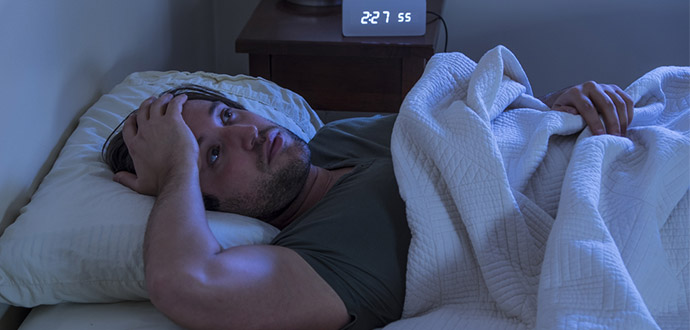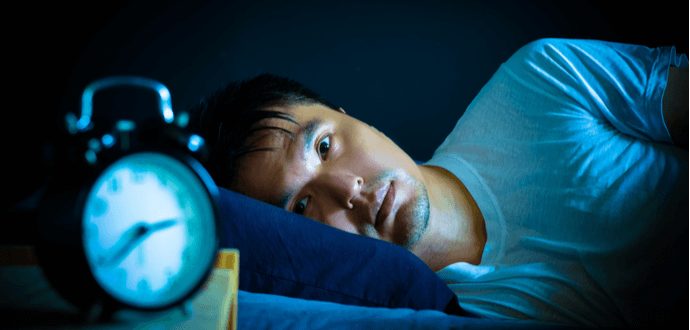The Physical and Mental Effects of Sleep Deprivation

Depending upon a person’s age and underlying health conditions, the average adult requires at least seven hours of sleep per day.2 It’s easy to place a low priority on sleep when schedules get busy and stresses arise. However, sleep deprivation is a very serious matter, and there are many concerning consequences of sleep deprivation. These consequences go far beyond simply feeling tired during the day.
This article describes the most common physical symptoms of sleep deprivation, as well as the mental effects of sleep deprivation in adults. This article also discusses when these symptoms may occur and how to ensure a more restful night’s sleep.
Mood Changes
Some of the biggest psychological effects of sleep deprivation are changes in mood. When a person has gotten inadequate sleep, he or she is more likely to become excessively emotional, be quick-tempered, and experience anxiety or depression. 3
Memory Lapses
Another one of the mental effects of sleep deprivation is memory lapses, which can impact how a person performs at work, home, and school. This effect occurs because the brain processes connections to help a person remember information during sleep. Both short-term memory and long-term memory can be affected by a lack of sleep. 3
High Blood Pressure
There are also many physical symptoms of sleep deprivation, such as high blood pressure. The body requires sleep to regulate its various systems and maintain blood pressure at normal levels. Furthermore, sleep deprivation increases a person’s risk for heart disease because of the increases in blood pressure increases and in bodily inflammation. 3
Weakened Immunity
The immune system is not immune to sleep deprivation effects, and not getting enough sleep can lead to increased disease risks. Not only will an unrested body be more susceptible to common illnesses, such as the flu, but it can also be at a greater risk for more serious conditions, including diabetes.3
Weight Gain
Among the many side effects of sleep deprivation is weight gain. This is because sleep is needed to transmit chemicals between the brain and body that it is full and has nutritional balance. When a person is sleep deprived, they are more likely to overeat and make unhealthy food choices that can lead to becoming overweight or obese.3
When Sleep Deprivation Effects Occur
The effects of sleep deprivation typically set in when a person has gotten less than five hours of sleep per night. Getting less sleep for just one night may not cause these symptoms, but prolonged sleeplessness for three or more nights can result in multiple sleep deprivation effects.
One of the best ways to avoid these symptoms is to make sleep a priority and adjust the daily schedule to allow enough time for sleep. Many adults can also benefit from taking natural-acting melatonin supplements, like NiteThru, to help their bodies promptly fall asleep and stay asleep throughout the night. This is a great option for night shift workers, travelers with jet lag, and individuals who have health conditions that affect their bodies’ natural ability to sleep well.1
References
- National Institutes of Health. Melatonin: In Depth. Retrieved December 13, 2018 from https://nccih.nih.gov/health/melatonin
- National Sleep Foundation. How Much Sleep Do We Really Need? Retrieved December 11, 2018 from https://www.sleepfoundation.org/how-sleep-works/how-much-sleep-do-we-really-need
- Johns Hopkins Medicine. The Effects of Sleep Deprivation. Retrieved December 13, 2018 from https://www.hopkinsmedicine.org/health/healthy-sleep/health-risks/the-effects-of-sleep-deprivation
“Please note, the material located on our site is for informational purposes only, is general in nature, and is not intended to and should not be relied upon or construed as a therapeutic claim or medical advice regarding any specific issue or factual circumstance.”








